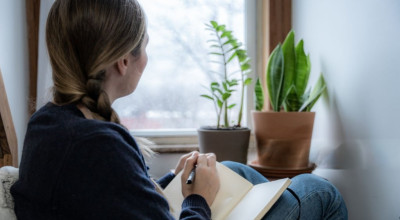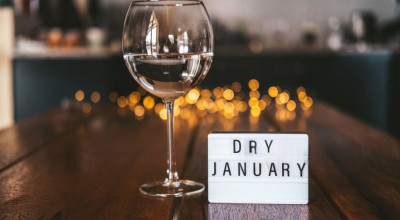Coronavirus Causing Rise in Drug, Alcohol Relapses
April 9th, 2020
America is buckling down on shelter-in-place and quarantine orders across most of its states and cities. Thousands of people are actively participating in social isolation and preventing themselves from visiting their close friends and loved ones. For many, this is a challenge that won’t come easily but will eventually overcome once the novel coronavirus begins to subside. For other individuals in recovery, it is becoming a gateway towards relapse and breaking days, months, or even years of hard work.
While organizations and safe meeting places for those struggling with addiction are closing their doors to prevent group meetings and spread of the coronavirus, sources of problem and relapse such as liquor stores remain open. For someone fighting alcoholism for example, this likely only adds to the isolation of quarantine.
Experts such as Dayry Hulkow, M.S., are starting to see a rise in relapses among her patients. Patients and recovering individuals are being cut off from their support systems which is leading to the erosion of hard work and will, and eventually resulting in drug and alcohol relapses. As safety measures increase around the coronavirus and social isolation keeps getting pushed, experts predict that relapses will trend accordingly.
Staying Strong During Quarantine
In a news article by Fox News, Hulkow writes to reporters that "Social support and active involvement in the program both play a huge role in recovery. In the absence of these, ‘isolation’ and ‘emotional distress’ can be significant ‘triggers’ to relapse. Feelings of depression, anxiety, fear, uncertainty, loneliness and boredom can easily escalate particularly during this time.”
There is no way to completely alleviate or control one’s triggers that lead to relapse, but there are ways to fight and help reduce the chances of losing control. Sometimes fighting isn’t always enough, but it’s still essential to try 100% of the time.
Though helpful organizations such as Alcoholics Anonymous (AA) and Narcotics Anonymous (NA) cannot meet in person, it’s still possible to follow along with each associated program online virtually. The Anonymous support programs have been taking steps to help elevate their online presence and will continue to do so as quarantine continues. Attending online gatherings is still an option for those who want to speak up about recent struggles.
Hotlines and helplines are also an option for those with access to telephones and the internet. Organizations such as Substance Abuse and Mental Health Services Administration (SAMHSA) offer free digital resources to help assist those stuck at home. They also provide resources on what to do, where to go, and who to talk to when nearing or currently going through a relapse. Organizations such as SAMHSA are taking every step that they can to equip recovering individuals to find the resources they need to stay healthy.
On top of engaging in virtual support programs, spending time engaging with mindful and creative activities can also help center a mind away from addiction. Spending time reading recovery and self-help literature, engaging in a hobby, and logging your thoughts into a journal or diary are all examples of other healthy places to redirect your mental energy. Creative and self-fulfilling activities have been proven to release dopamine in our brains, which in short makes us happier. When the activities you’re spending time doing make you happy, they’re much more likely to retain your attention and help distract your brain.
Find and Create a New Routine
Routine while stuck at home may not be the most thrilling concept to a lot of people, but finding a new one during quarantine can help keep us grounded and our brains busy. Some are fortunate enough to be able to work from home and have a sort of routine given to them, but others who are either out of a job temporarily, or unemployed will need to find and create their own new routine.
While routine should revolve around your own preference of activities, there are tried and true activities to do daily that will work wonders for your mind and body in most cases. Make blocks of time devoted to different tasks and maintain a schedule. A premade schedule establishes routine in our brain after only a few days of execution. When your brain is focused on maintaining the daily grind, it becomes easier to keep thoughts of drugs or alcohol out and productive ideas and concepts in.
Alongside creative activities we discussed earlier, another layer of reinforcement to add is daily exercise. Exercise elevates the production of all kinds of neurotransmitters in your brain that give the “runner’s high,” such as dopamine, serotonin, and endorphins. Creating a regimented schedule of workouts will directly improve both your body and mind while helping make you a happier person. Even if it’s only five or ten minutes a day!
Another is prescribed social time. Call or video chat with your friends or family and catch them up on your daily routine and activities. If you rely on your family or friends as a support system, they’ll likely want to know how you’re holding up in quarantine anyways. Even if you talk for other reasons, establishing a regular schedule will help build up a daily schedule and reduce that feeling of isolation at home.
In Conclusion
There’s no sure way to guarantee relapse won’t occur, especially during harder times like now. It’s hugely important to create a new system to adapt to changing times, however that may look like to you. There are a lot of resources available to help switch up your lifestyle in a healthy way and see positive change. It certainly won’t come without lots of hard work and a persevering willingness to stay strong, so taking the first steps is entirely up to you.
If you or a loved one need help in finding or maintaining recovery, we are here for you. Contact our admissions team today to learn more about our program and get started right away.


